You may have read it in the news. There’s going to be a new Hercule Poirot novel, and it’s going to be written by the British author Sophie Hannah. Normally a writer of psychological thrillers, the opportunity to write a Poirot story and follow in the footsteps of Agatha Christie was a dream come true for the author. The Belgian is, after all, her favourite fictional detective. As you know we’re celebrating all things classic crime this September, and today would be Agatha Christie’s 123rd birthday. So we asked Sophie Hannah how the new Poirot novel came about…
Christie is one of the all-time greats of crime fiction – when and how did you first discover her work?
I read The Body in the Library when I was 12 and fell in love with her brilliant plotting and the elegant clarity of her writing style. Enid Blyton’s work had already convinced me that a story powered by a mystery was always preferable to one that wasn’t, and, as I set about reading every word Christie had ever written, I realised that the best kind of mysteries – Murder on the Orient Express, And Then There Were None – were those that seemed to have no possible plausible solution, so that the baffled reader thinks, ‘This cannot be made to work; it’s simply impossible.’ Christie’s great genius was that she took outlandishly daring ideas that would probably never work and made them work brilliantly.
How did this opportunity to write a new Poirot novel come about?
My agent Peter Straus rang me up one day and said matter-of-factly, ‘Oh, I’ve suggested to Harper Collins (Agatha’s publishers) that they should get you to write a new Poirot novel. They’re just about to publish some new Jane Austen interpretations – by Joanna Trollope and Val McDermid among others – and you’re such a Christie fan.’
I laughed and said, ‘Don’t be ridiculous! If Harper Collins wanted a new Poirot novel there’s no way they’d want me writing it. They’d want someone mega-famous like Patricia Cornwell or Dan Brown…’
My agent said, ‘No, they seemed very excited by the possibility when I mentioned it, actually.’
After I got off the phone, something weird happened. For a couple of years, I’d had an idea for a crime novel that I hadn’t been able to make work in one of my psychological thrillers. I suddenly thought, ‘Oh, wow – that’s why I haven’t been able to make it work. It’s not a contemporary idea, it’s a golden-age-detective-novel idea. It would be the perfect case for Hercule Poirot.’
Once I’d had that thought I was very keen for Poirot and nobody else to solve this case. I wanted to give it to him almost as a present – to say, ‘Look how much I love you!’, in the way that, if I were a cook, I might bake a cake in the shape of his moustache!
When it comes to filling Agatha Christies literary shoes, what are your main concerns?
What if I write a bad book? A terrible book? The worst book ever? Well, I thought long and hard about this and decided that since I am, in literary terms, roughly equivalent to a speck of dust on the immortal moustache of Hercule Poirot, I cannot possibly do him any harm. Nor can I do Christie any harm. They are both literary legends and will remain so. If I write a terrible book – which I must stress that I will try very hard not to – it will fade away and leave the Queen of Crime untouched. But, if it goes well, I hope to provide Poirot with a mystery that his little grey cells will enjoy solving, and readers with a gripping and puzzling detective novel.
And what do you think the challenge will be?
To write something that is a fitting tribute to a book or writer that you love, without it being a pastiche, without directly copying their style or changing or distorting their creations in any way. And to be able to write it without thinking, ‘Yikes! Help! Am I crazy?!’ every five seconds!
When in the Poirot canon is it set?
It will be set in the late 1920s, between The Mystery of the Blue Train and Peril at End House.
Will you be reinventing our man or his world in any way or playing it as close to the original as you can?
Poirot will be Poirot to the letter. Anything else would be sacrilege. I will take no liberties with him whatsoever. He will be seen through the eyes of the novel’s narrator – a character entirely of my own creation – and written about as such, but he will be the Poirot we all know and love. This felt like the most natural approach to me, as well as the best way to make the book work. It will enable me to write not in a ‘Christie style’, but in the voice of a character I’ve invented, so there’s no risk of stylistic pastiche. Also, I didn’t create Poirot but I do know him very well – and so it will feel more authentic to write from exactly that point of view: not Poirot’s owner or inventor, but someone very well acquainted with him.
In terms of attitudes to class, the attitudes in the novel will be the attitudes of the characters and, since those characters are late 1920s characters, there won’t anyone instructing Poirot to check his privilege or accusing him of ‘mansplaining’ during the denouement.
There have been so many Poirot adaptations over the years, most recently with David Suchet as the detective. Does this affect you imagine him?
I see him as David Suchet, absolutely. I love the Suchet TV versions.
What are your top three Poirot novels?
Murder on the Orient Express, After the Funeral and Dead Man’s Folly. I’m not saying these are the best, but these are my personal favourites.
Where are you at with the book and how’s it going?
I’ve written a hundred page plan of the whole thing – every plot point, every twitch of a character’s eyebrow. I haven’t started writing the actual novel yet. It’s published in September 2014. The title has yet to be decided. I have an idea for an ace title, but for a technical/practical reason it might not work – so nothing confirmed yet.
Enter our Agatha Christie birthday quiz right here.







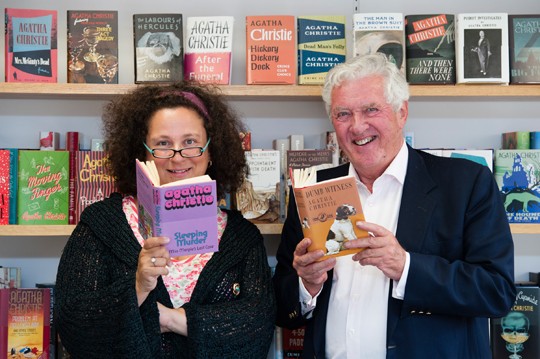
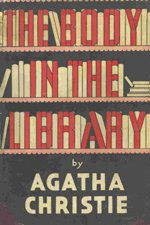
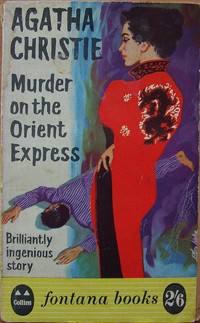
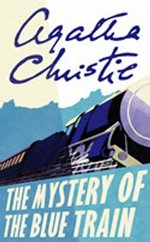
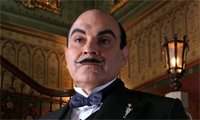

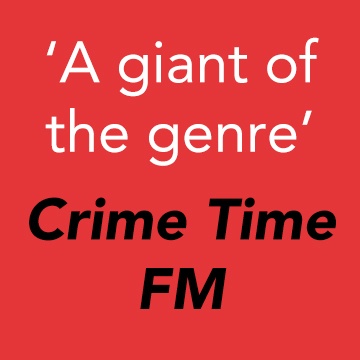
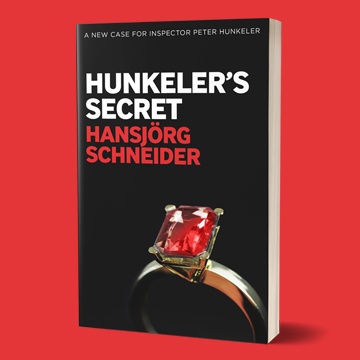
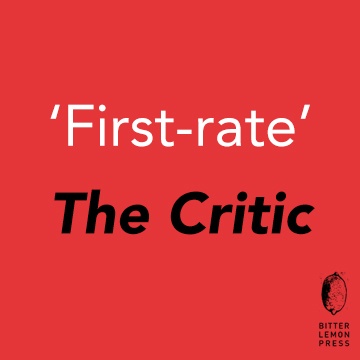
She will have an advantage in that Poirot is something of a cipher. He has his mannerisms, his little ways, his fussiness, but he’s pretty much an instrument for telling the story. If she leaves him alone and gives us a good Golden Age plot, a complex murder with plenty of clues and red herrings, and a brilliant solution, she’ll do fine.